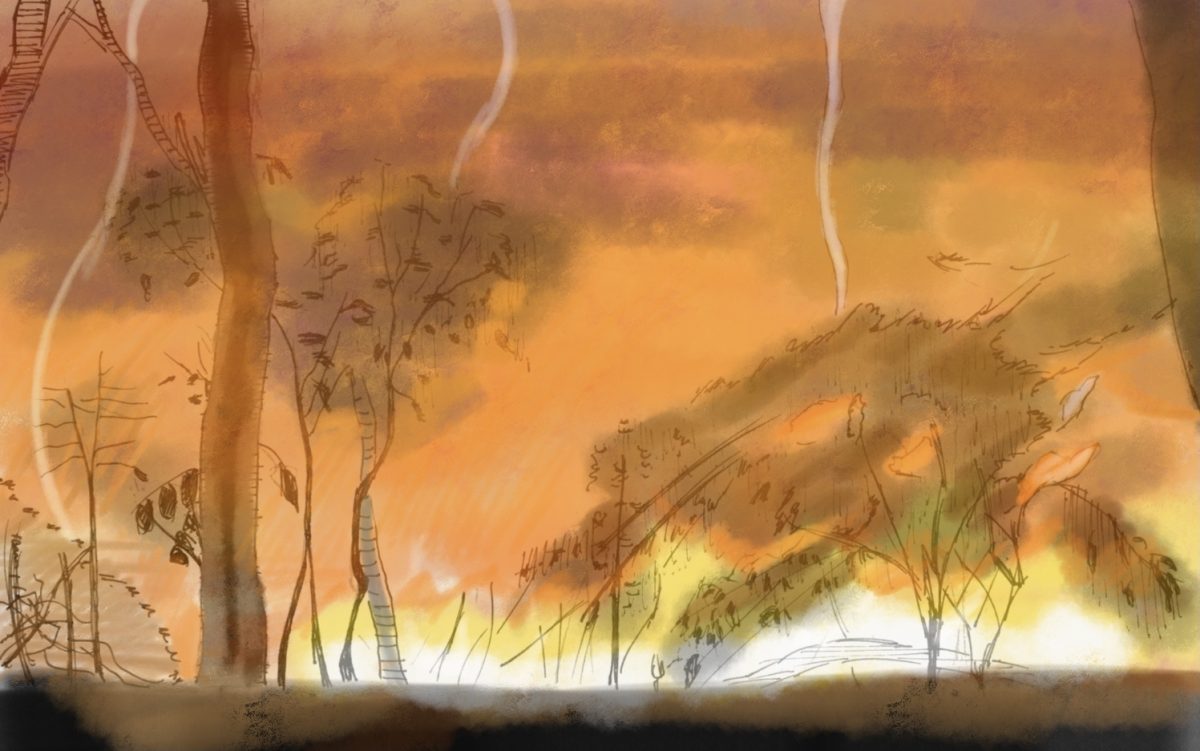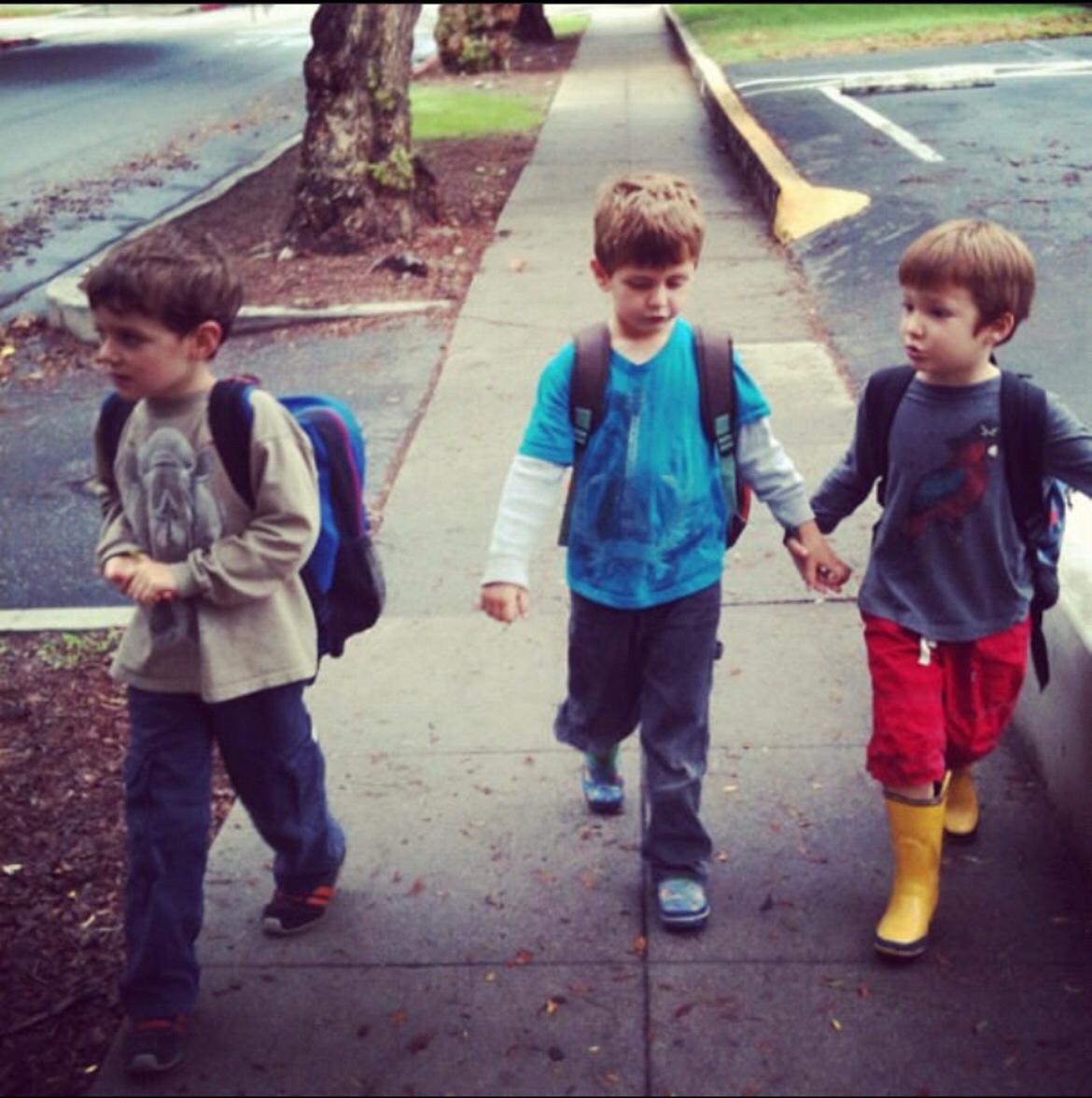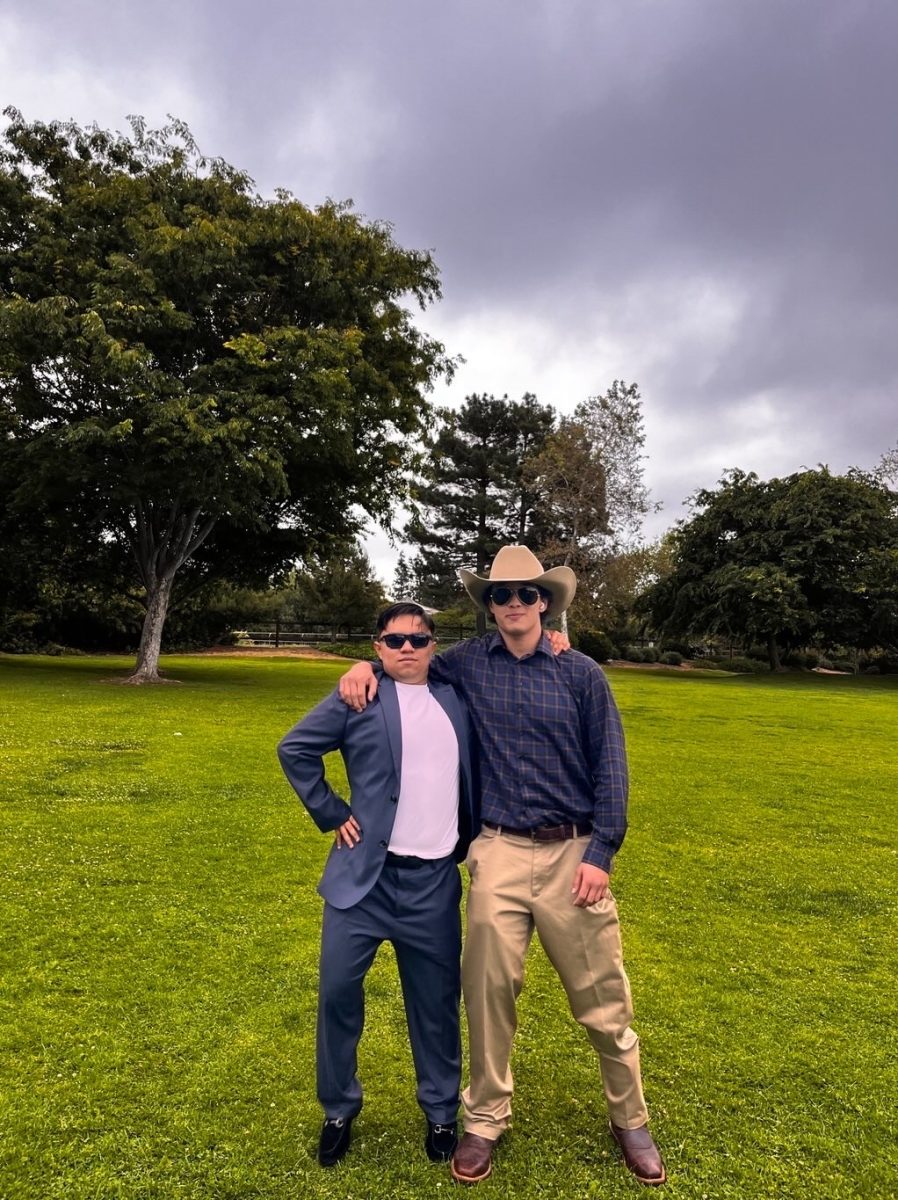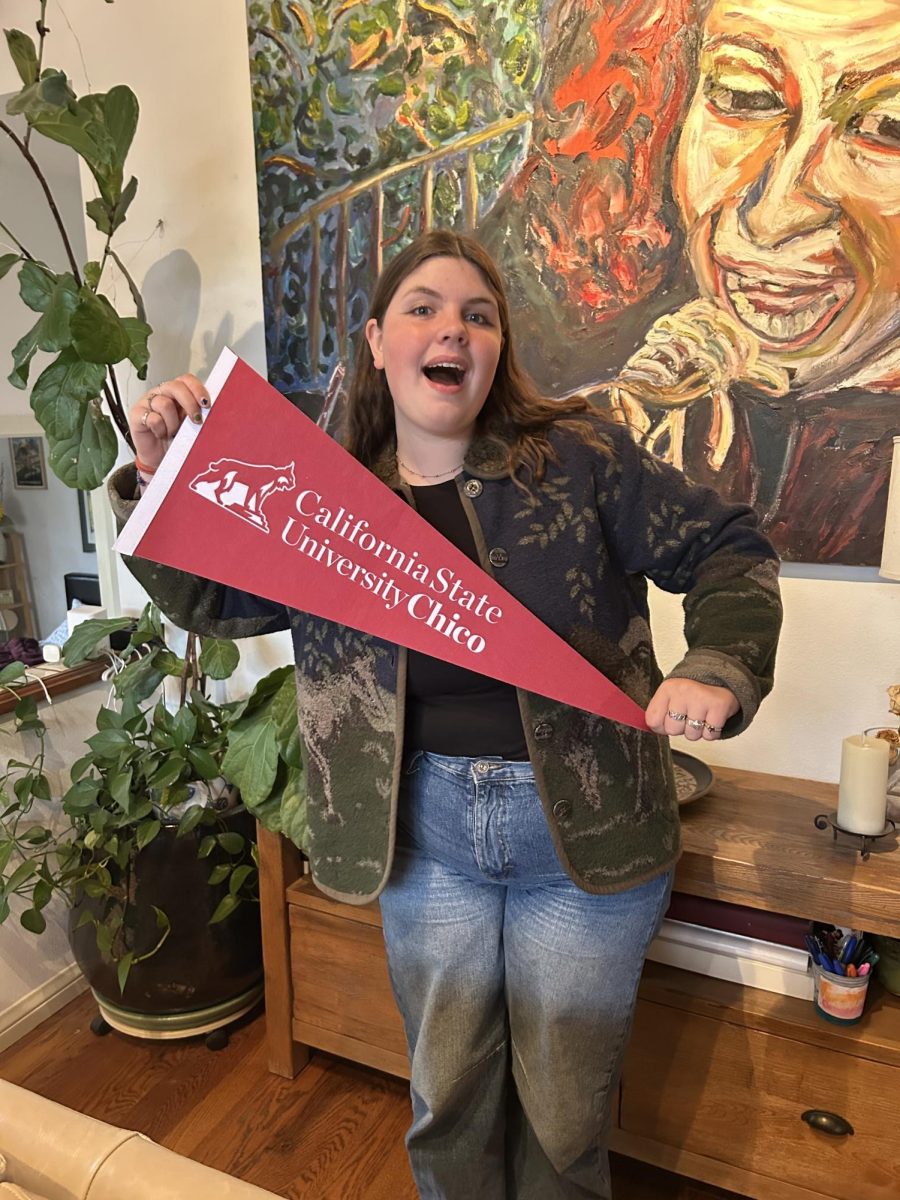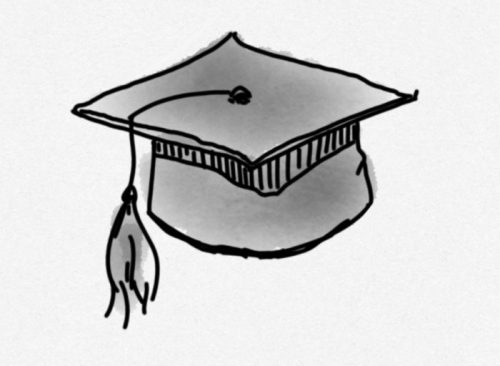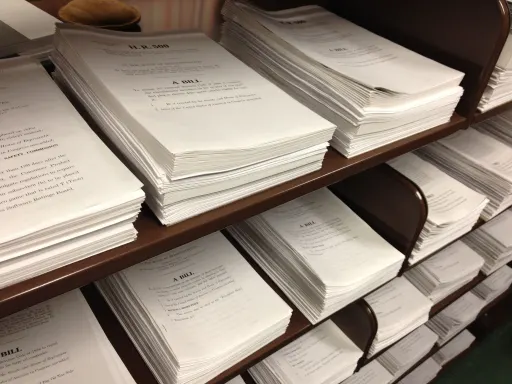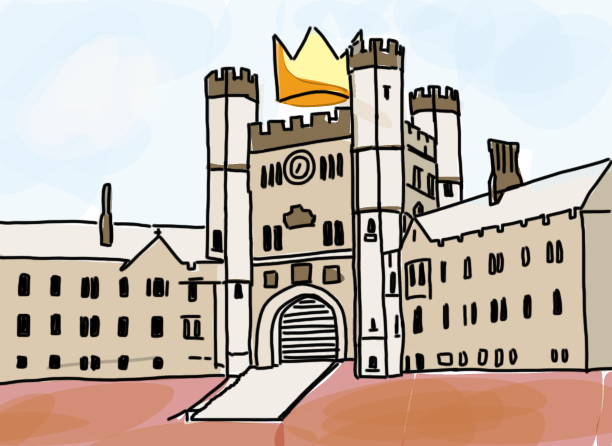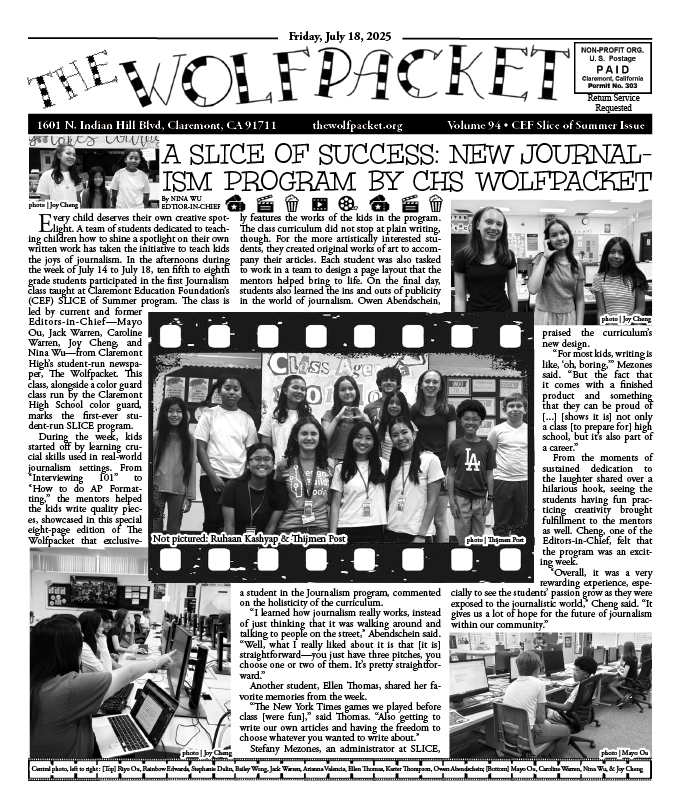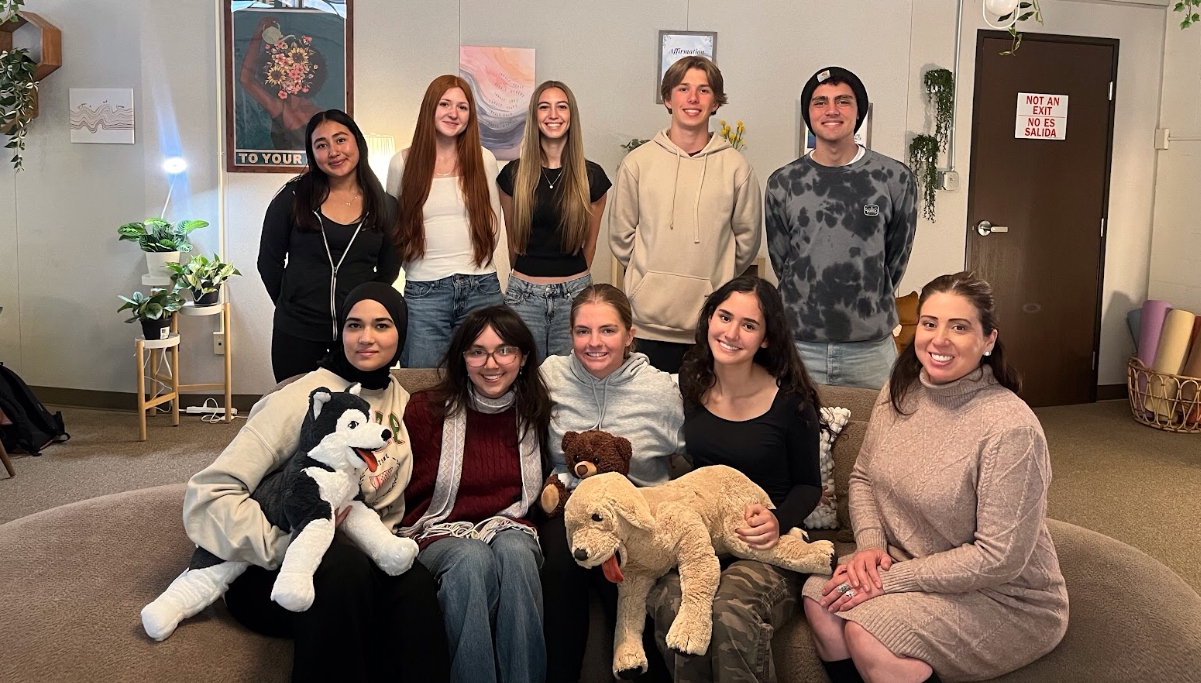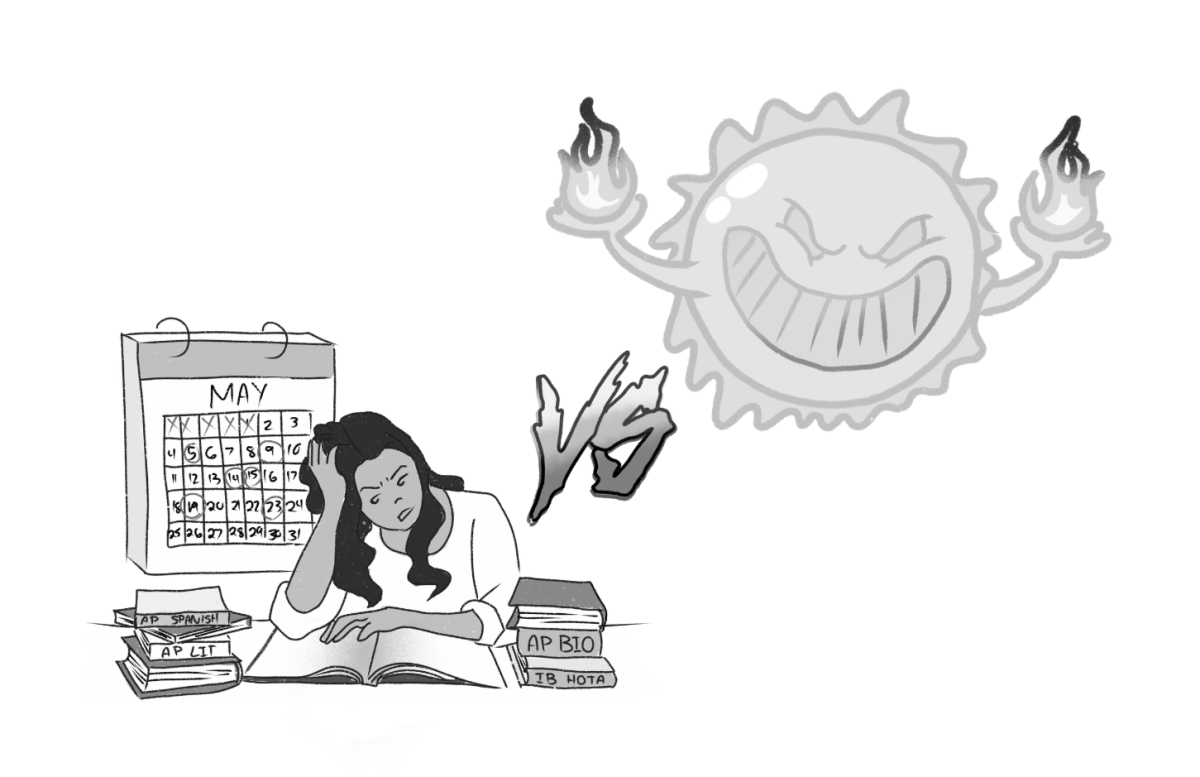In the summer of 2024, California was at its hottest on record. The average temperature for June, July, and August was 80.3 degrees. This surpassed 2020’s record of 79.3, which was a year characterized by its destructive and far-reaching fires. With higher temperatures, no matter how minimal, came the risk of a worse fire season than the one that preceded it two years prior.
In the past decade, California has experienced some of the most detrimental heat waves to date, which have caused wildfire seasons. The deadliest wildfire season in California started in 2018, with the Camp Fire alone burning an area of 153,336 acres and causing 85 civilian fatalities. Just two years later, 2020 saw the largest wildfire season recorded in California’s modern history with more than four percent of the state’s total land burning in a single year.
Now the late summer heat waves of 2024 have sparked a new and deadly fire season. As of mid-September, there are three rapidly growing Southern California wildfires–the Bridge Fire, the Line Fire, and the Airport fire. Together, they have burned more than 100,000 acres in less than a week. The Bridge Fire, located in the San Gabriel Mountains, is currently the largest of the three at 54,877 acres as of September 22 and poses the largest threat to CHS and its students.
Olivia DeCosta, a sophomore at CHS, recounts her struggles with living in California’s changing climate.
“I have very mild asthma, which hasn’t changed over the years, but because of climate change, it has gotten increasingly harder for me to just live and breathe, especially through summer and fall,” DeCosta said. “During the wildfires, when the air quality was really bad, I had to wear a mask. If I took it off, I was risking having a serious asthma attack.”
With scorching temperatures and dangerous air quality, many students are left wondering about the cause of this sudden weather change. 152 extreme-weather attribution studies by climate organization Carbon Brief found that human-induced climate change makes these extreme heat events more likely or severe. According to the EPA, the June 2024 heatwave in the US, Mexico and Central America was made 35 times more likely and 35°F warmer because of climate change. AP Environmental Science Teacher, Jenna Mittman, shared her concerns.
“What climate change is doing is taking normal weather patterns and shifting them to the extremes,” Mittman said. “…What we’ll likely end up seeing is a shift in the curve; as climate change progresses, worse weather events will be happening more often.”
With quickly rising temperatures threatening their health and livelihoods, CHS students and families are left wondering what they can do to help. The President of CHS’ Environmental Club Voice for Change, Nurella Cook, gave a statement on the matter.
“This election will have long lasting climate impacts,” Cook said. “We urge voting age students to pick the candidate they think will have the most beneficial impact on our environment. [In the meantime], stay hydrated, wear protective clothing and seek help for cooling.”
Climate change is not something that will go away quickly, and will likely become the face of our future reality. But as long as we continue to do everything in our power, we can still hold out hope for cooler summers.
Summer 2024 was California’s hottest on record
Donate to The Wolfpacket
$85
$500
Contributed
Our Goal
Hello there! Our goal is to provide relavent, engaging journalism for readers of all ages. Your donation will support the student journalists of the Wolfpacket at Claremont High School, and will allow us to purchase equipment, print our monthly issues, and enter in journalism competitions. We appreciate your consideration!
More to Discover
About the Contributors
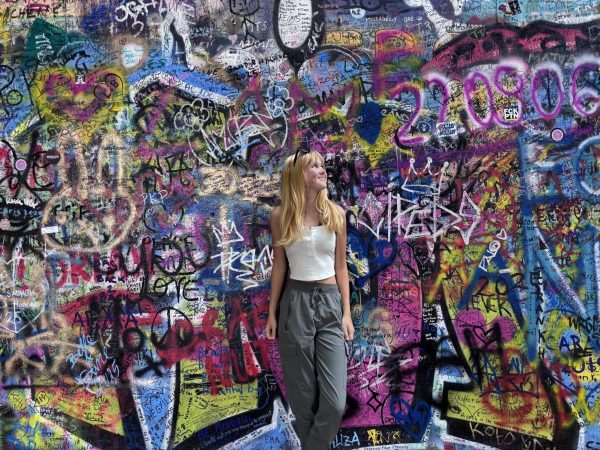
Annabelle Brusky, Head Spotlight Editor
Shunned by the IB scheduling gods, a two-year member of the Wolfpacket, Annabelle Brusky has resigned herself to out-of-class editorship; co-opting the paper’s Back Page and Advertising Management duties into her ever-growing list of academic extracurriculars. Ever the try hard, Brusky finds endless joy in juggling the responsibilities of a speech & debate Speech Captain, board member for the Legion of Voters, website manager for the League of Women Votes, member of Civic Act, graphic design lead for CHS Hack Club, part-time unpaid/unlicensed/unrecognized therapist, and full-time political activist…all while navigating the IBDP trenches. This year she is excited to find a break from the academics and explore the creative pursuits of designing the Wolfpacket’s Spotlight page and brainstorming funny WolfCasts with her co-Advertising Manager Min Cho. Brusky also looks forward to getting to know new staff members, and hanging out at Wolfpacket late nights!
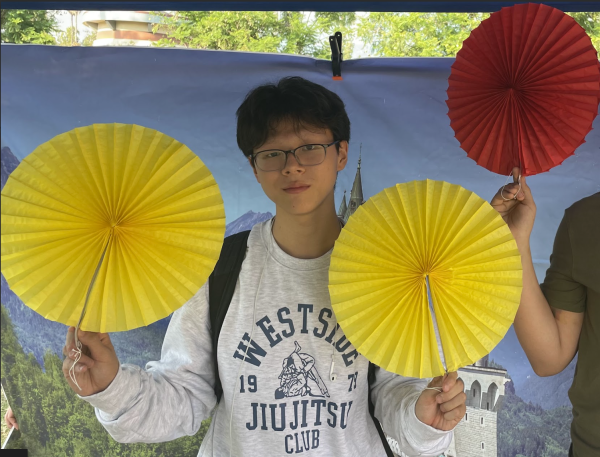
Samuel Kim, Contributing Artist
Samuel Kim is a senior at CHS and is a contributing artist for the Wolfpacket. Joining Wolfpacket on a whim, Kim hopes to contribute and make many wonderful senior memories in his first and last year on the staff. Involved in many school activities, Kim has been on the Volleyball team for four years, is president of Korean Club, and volunteers at the City of Hope. He looks forward to contributing his artistic talents throughout the 2024-2025 school year.



